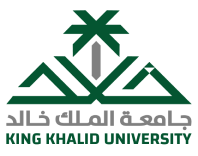- An ability to identify, formulate, and solve complex engineering problems by applying principles of engineering, science, and mathematics
- An ability to apply engineering design to produce solutions that meet specified needs with consideration of public health, safety, and welfare, as well as global, cultural, social, environmental, and economic factors
- An ability to communicate effectively with a range of audiences (Written and Oral Communication)
- An ability to recognize ethical and professional responsibilities in engineering situations and make informed judgments, which must consider the impact of engineering solutions in global, economic, environmental, and societal contexts
- An ability to function effectively on a team whose members together provide leadership, create a collaborative and inclusive environment, establish goals, plan tasks, and meet objectives
- An ability to develop and conduct appropriate experimentation, analyze and interpret data, and use engineering judgment to draw conclusions.
- An ability to acquire and apply new knowledge as needed, using appropriate learning strategies.
The program has graduate attributes (GA) which are mentioned below:
GA-1: Scholarship of Knowledge
GA-2: Problem Solving
GA-3: Critical Thinking
GA-4: Usage of Modern Tools
GA-5: Communication
GA-6: Ethical Practices and Social Responsibility
GA-7: Independent and Reflective Learning
GA-8: Research/Investigation Skill
GA-9: Life-long Learning
Knowledge and understanding
PLO1-K1: Understand the broad in-depth knowledge to solve concepts of engineering problems using the principles of engineering sciences, mathematics and natural sciences, and validate the solution obtained in the field of Industrial Engineering.
PLO2-K2: Recognize in-depth knowledge and understanding of processes, quality, statistical techniques and engineering practices relevant to the professional resolution of complex engineering problems.
PLO-3-K3: Define the wide range of specialist knowledge in industrial system management, process optimization, sustainability, economics, environment, policy, health and safety, to be understood by drawing on current developments in industrial engineering.
PLO4-K4: Examine and formulate the experiments for engineering problems or industrial engineering-specific research topics.
Skills
PLO5-S1: Apply the basic principles of integrated theories and concepts in production technology, statistical control and analysis methods and quality systems for industrial engineering.
PLO6-S2: Select and apply statistical tools, data interpretation, and modern engineering techniques to solve complex engineering problems.
PLO7-S3: Use critical thinking and improve creative solutions to existing problems, in numerous complex settings, in the fields of industrial engineering.
PLO8-S4: Use and familiarize progressive procedures, methods, tools, mechanisms in dealing with several complex practical accomplishments in industrial engineering.
PLO9-S5: Communicate effectively to demonstrate theoretical knowledge in mathematics, statistics, industrial systems, engineering sciences, quality control, natural sciences and specialized transfer of complex knowledge, skills and ideas to the community.
PLO10-S6: Conduct the analysis using statistical tools to investigate, and carry out research activities on current developments or specific research topics in industrial engineering.
Values, Autonomy, and Responsibility
PLO11-V1: Recognize ethical and professional responsibilities in engineering situations, and commit to the professional ethics and norms of engineering practice to make informed judgments.
PLO12-V2: Effectively plan and achieve professional development, evaluate own learning and performance, and autonomously make decisions related to self-development.
PLO13-V3: Engage in life-long learning for acquiring and implementing knowledge, as needed, using suitable learning strategies
PLO14-V4: Communicate effectively on engineering activities with a range of audiences.
 كلية الهندسة
كلية الهندسة